Solving Real Business Problems with Agility
In the fast-paced digital age, businesses are under constant pressure to innovate, optimize workflows, and improve user experience, without always having the luxury of time or unlimited development resources. But internal tools and operational apps can’t wait for long development cycles. This is where Microsoft Power Apps consulting comes into play, not as a DIY playground for hobbyists, but as a robust, Low-code Power Apps development platform that, when handled by professionals, becomes a key enabler of digital transformation, especially for Power Apps for internal workflows that drive measurable results.
At Microsoft Power Apps we bridge the gap between enterprise-grade software engineering and the speed of Low-code Power Apps development. This blog explores how Power Apps, with proper architecture and expert execution, can become a strategic asset, not just a shortcut, particularly when used for Power Apps for internal workflows.
What is Microsoft Power Apps?
Microsoft Power Apps is a part of the Microsoft Power Platform, a suite of tools built to enable low-code development, data analysis, automation, and secure digital portals. Power Apps specifically focuses on building custom apps quickly for business needs, and with the right Microsoft Power Apps consulting, these solutions can be elevated to enterprise-grade standards.
There are three main types of Power Apps:
- Canvas Apps: Offer full control over the app design. You start with a blank canvas and drag-and-drop elements to build pixel-perfect apps tailored to specific roles and Power Apps for internal workflows.
- Model-Driven Apps: Built on your data model. These apps follow a more structured layout and are driven by the data stored in Dataverse, often created through Low-code Power Apps development best practices.
- Power Pages (formerly Portals): Secure external-facing websites or portals built using low-code for partners, vendors, or customers, frequently delivered via Microsoft Power Apps consulting.
Power Apps connects seamlessly with Microsoft 365, SharePoint, Dynamics 365, SQL Server, Excel, Azure, and over 900 connectors. But to build enterprise-ready solutions, a deeper layer of architecture, integration planning, and security management is required—areas where Low-code Power Apps development expertise is essential.
Why Power Apps Needs Engineering Rigor
It’s easy to assume that Power Apps are only for “citizen developers” or that anyone can build a complete solution without technical expertise. But for scalable, secure, business-critical applications, Power Apps needs the same strategic thinking and design considerations as any other software solution. This is where Microsoft Power Apps consulting becomes vital.
Here’s why:
- Data complexity: Many apps must integrate with ERP, HRMS, or CRM systems where relationships, permissions, and data validation are complex, particularly in Power Apps for internal workflows.
- Security: Enterprise apps require role-based access, field-level security, and secure APIs.
- Governance: Without proper environment and deployment control, app sprawl and version conflicts can derail operations.
- Scalability: Apps must work seamlessly across desktop, mobile, and browser, with multi-user concurrency and performance optimization, a key deliverable of Low-code Power Apps development.
This is where Ariel’s expertise makes the difference. We bring software development best practices to Power Apps, from planning and development to deployment and long-term support, ensuring that Power Apps for internal workflows are reliable, secure, and scalable.
Real-World Use Case: Transforming Internal Service Requests
One of our clients, a growing tech consulting company, was struggling with internal service request management. Every IT or facility-related request was submitted via emails or informal chat messages, leading to delays, miscommunication, and zero traceability.
We built a custom request management app using Power Apps integrated with Microsoft Teams and Power Automate as part of a Microsoft Power Apps consulting engagement. Here’s how it worked:
- Employees filled out a form in the Power App embedded inside Teams.
- Power Automate picked up the request and routed it to the right department based on the request type.
- A SharePoint list tracked every request with real-time status updates.
- Managers had a dashboard built in Power BI to track average response times and open request categories.
Impact:
- Reduced average request resolution time by 47%
- 100% request traceability
- Improved cross-department communication
- Enabled data-driven decisions for resource allocation
This wasn’t just a form and a flow; it was a mini internal SaaS product that enhanced operations, was designed through Low-code Power Apps development, and optimized for Power Apps for internal workflows.
If you’re curious about more real-world automation scenarios beyond internal requests, “Automate Everything: Real-World Power Automate Use Cases That Save Time and Boost Efficiency” check out our blog for inspiration.
What Kind of Apps Can You Build with Power Apps?
With the right technical foundation, Power Apps can power a wide range of internal and external business solutions. Here are some examples where Ariel has seen the strongest impact:
1. Internal Operations Apps
- Leave management systems with multi-level approvals
- Expense trackers integrated with finance systems
- HR onboarding workflows tied into employee databases and document upload portals, examples of Power Apps for internal workflows.
2. Field Service Apps
- Inventory check-in/check-out apps with barcode scanning
- On-site inspection tools with photo capture and GPS tagging
- Service request forms that work offline and sync data later, often part of Low-code Power Apps development.
3. Business Enablement Apps
- Sales quote generators connected with product catalogs and pricing APIs
- Customer intake forms integrated with CRMs
- Time tracking and attendance tools for remote or hybrid teams, built through Microsoft Power Apps consulting.
With Ariel, these apps aren’t just built; they’re designed with scale, maintainability, and governance in mind.
Building Power Apps the Ariel Way
Power Apps may accelerate app development, but to avoid technical debt and operational risks, a structured development process is essential. At Ariel Software Solutions, we apply our enterprise software expertise to deliver Power Apps that are:
- Secure: We implement role-based access, ensure data compliance, and follow Microsoft’s security recommendations.
- Integrated: Our apps connect to APIs, third-party platforms, and Microsoft 365 services smoothly.
- User-Centric: We design intuitive UIs with clear flows, validation, and accessibility in mind, especially for Power Apps for internal workflows.
- Tested & Monitored: Each app is tested for usability, data integrity, and performance across devices.
- Scalable: Built using reusable components and modular logic to support future expansion, an important part of Low-code Power Apps development.
Our proven methodology:
- Discovery & Process Mapping
- UX Wireframing & Approval
- Data Modeling & Integration Setup
- Development (Canvas or Model-Driven)
- Power Automate & BI Integration
- UAT Testing & Deployment
- Post-Launch Monitoring & Support
Power Apps + the Microsoft Power Platform Ecosystem
The power of Power Apps amplifies when combined with other tools in the Microsoft Power Platform:
- Power Automate: Automate notifications, approvals, data sync, and document generation for Power Apps for internal workflows.
- Power BI: Visualize app usage, performance, and business KPIs.
- Dataverse: Acts as the secure and scalable backend for storing app data, a core part of Low-code Power Apps development.
- Microsoft Teams: Embed apps within Teams for seamless access.
Together, these tools build a unified digital ecosystem that accelerates productivity and removes information silos, with Microsoft Power Apps consulting ensuring maximum value.
You can also explore our in-depth guide Unifying Data and Workflow Automation: A Deep Dive into Microsoft Power Platform to see how all these tools work together for maximum efficiency.
Who Should Consider Power Apps Implementation?
Organizations that:
- Are you looking to digitize or modernize internal tools through Power Apps for internal workflows
- Use Microsoft 365, SharePoint, or Dynamics 365
- Face challenges with manual processes or paper-based forms
- Want to prototype and deploy apps quickly without sacrificing quality via Low-code Power Apps development
- Need custom solutions without the cost of full-stack app development, achievable through Microsoft Power Apps consulting
Whether you’re an enterprise or a scaling SaaS business, Power Apps (when handled by experts) provides a fast, secure, and scalable way to bring your business logic to life.
Conclusion

Power Apps is transforming how businesses build internal tools, automate workflows, and extend data accessibility. But building effective, secure, and scalable apps still demands a software partner with the right mix of technical expertise and business understanding.
At Ariel Software Solutions, we combine our software development roots with platform fluency to deliver enterprise-grade Power Apps solutions through Microsoft Power Apps consulting, backed by the principles of Low-code Power Apps development, and designed for impactful Power Apps for internal workflows.
Ready to modernize your operations with Power Apps?
Book a consultation with our experts today and see how our custom apps can eliminate bottlenecks, streamline workflows, and improve your bottom line.
Frequently Asked Questions (FAQs)
1. What is Microsoft Power Apps consulting?
It’s expert guidance to build, customize, and optimize Power Apps for your business needs, especially Power Apps for internal workflows.
2. What is Low-code Power Apps development?
It’s a faster way to create apps using minimal coding, with a professional setup for scalability and security.
3. Can Power Apps for internal workflows replace manual processes?
Yes, they can fully automate tasks like approvals, requests, and tracking.
4. Is Low-code Power Apps development secure?
Yes, when done by experts, it follows Microsoft’s enterprise security standards.
5. How quickly can Microsoft Power Apps solutions be implemented?
Simple apps can go live in weeks; complex ones may take a few months.




